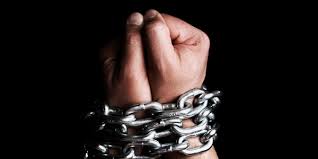
Addictions are some of the most common psychiatric illnesses, on par with depression and anxiety. As mental illnesses, they are indeed generally lifelong diseases, like diabetes, that for the most part can be treated and managed, but not cured.
Just as having diabetes does not make us “bad” or “defective,” so it is that addictions do not make us “bad” or “defective,” though we do “bad” things when we are caught in the throes of the illness. Some people think of addiction as a failure of character. Although it is true that people suffering from character disabilities may be more vulnerable to addiction, there are many with perfectly intact characters who also succumb to addiction. Addiction is indeed a disease, and not a moral failing, though our morals do fail us when we lose our free will to the addiction.
People who fall prey to addiction are no less than others. Addiction is not an indictment of character or human worth. Addicts are not inferior or defective. If we define addiction as being a compulsive destructive habit, then most of us have one or more addictions. Liberation from addiction can be seen as an empowerment of what is our true, best, authentic self. The disease of addiction robs us of who we are, while recovery allows us to reclaim who we are. We know from this that addiction is truly a disease, as remission of the disease with recovery makes us whole.
Addictions, like some other psychiatric illnesses, are distinguished by the fact that they tell the victim that the victim is OK. Since the addiction is in charge and needs to perpetuate itself at all costs, the brain resorts to a variety of primitive defenses to protect the disease, including denial and rationalization. This can make the illness quite challenging to treat.
If we saw more clearly that addictions are brain diseases, we would be more skillful in supporting those with addictions without enabling them. By “enabling,” we mean supporting someone’s addictions or protecting them from the natural negative consequences of their addictions. Recovery requires in part that we feel the pain of the disease so that we might wake up to a better way. Shielding loved ones from the pain of their disease only perpetuates the disease.
Some people make the mistake of abandoning loved ones who are lost in addiction. While we may set limits and impose painful consequences, such as asking someone to leave the house unless they are engaged in recovery, we need to not abandon those who suffer from this terrible disease. It is this balance of unconditional love combined with tough, painful consequences that makes up the practice of “tough love.” While victims of addiction are not accountable for their illness, they are accountable for their recovery, including asking for the help that they need to be in recovery. With tough love, we both support and hold others accountable.
Our society needs to better understand addiction. Rather than stigmatizing addiction, we need to develop, through understanding, a cultural compassion for those afflicted with this often lethal disease. If we were more enlightened, we would teach people the risks of using addictive substances, such as alcohol. Rather than punishing victims who have succumbed to illegal drug use, we need to provide treatment along with the natural rewards of a life of recovery.
